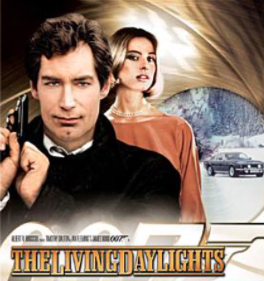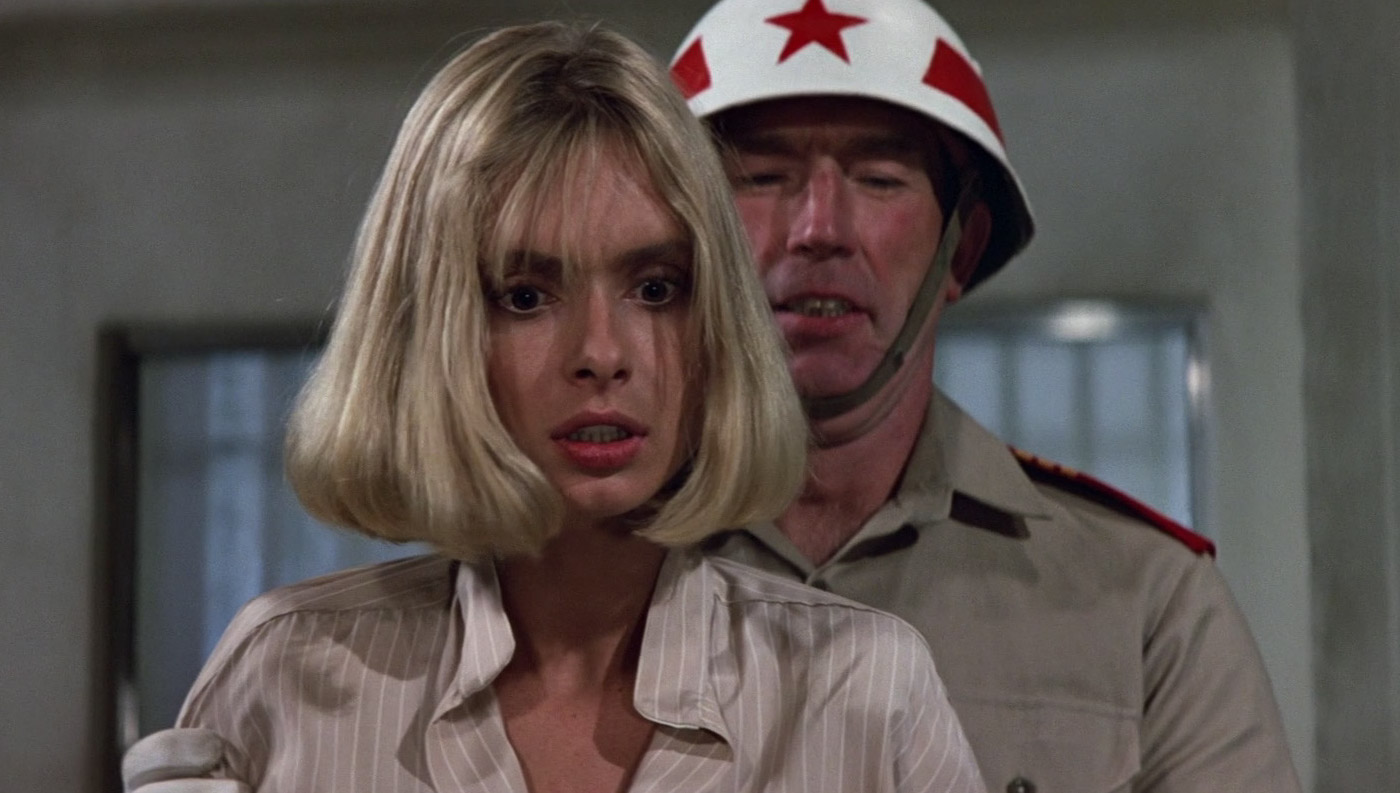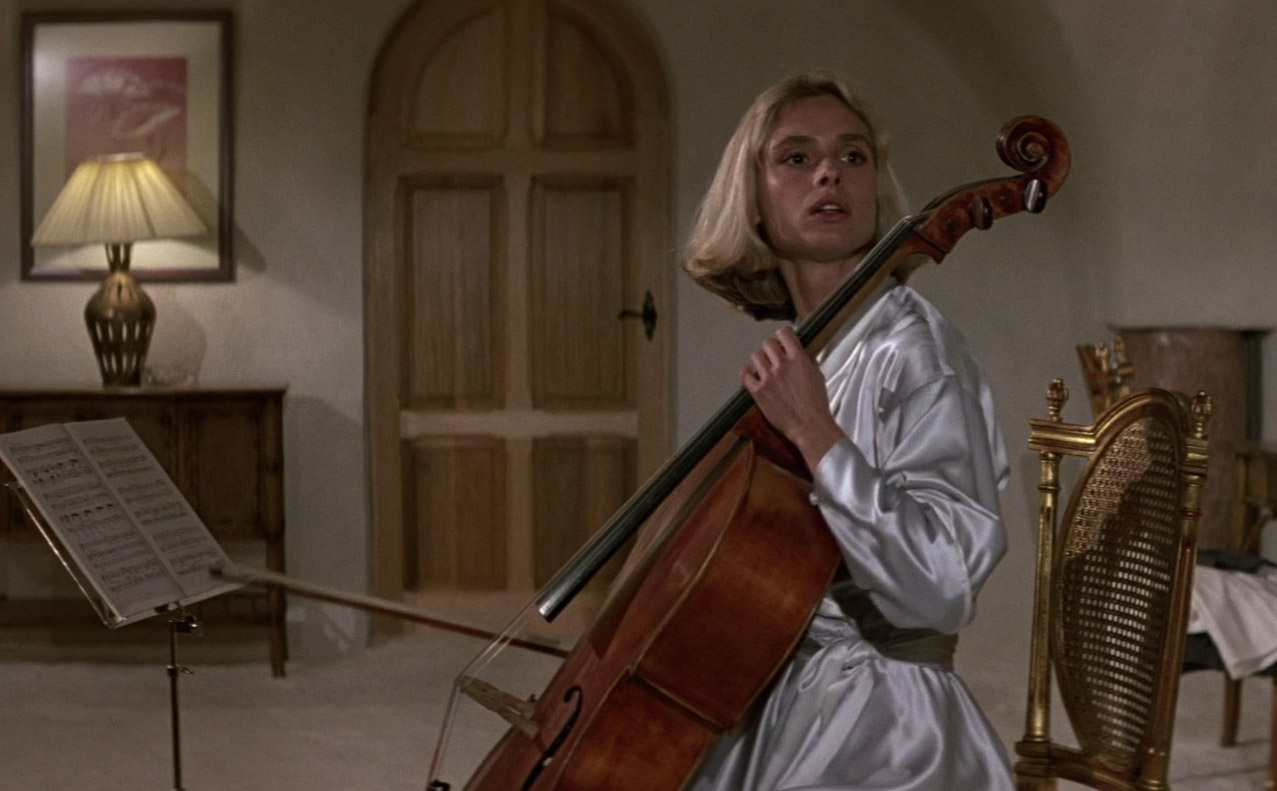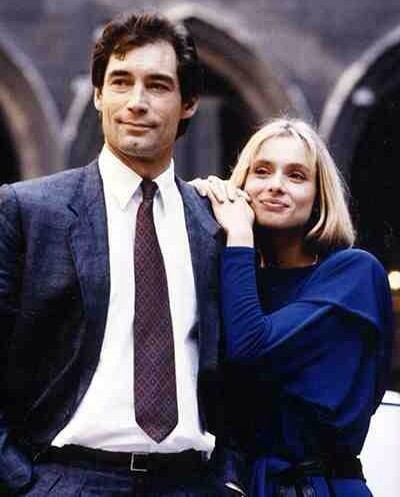1987: The Living Daylights and “Strong Female Characters”
 Monday, November 2, 2020 at 12:20PM
Monday, November 2, 2020 at 12:20PM 1987 is our year of the month. Here's Deborah Lipp...
 One of the unusual things about 1987 is that three of the ten top-grossing films of the year are female-centric. Perhaps two of those films—Moonstruck (about which I’ve written here ) and The Witches of Eastwick—are more correctly called “Cher-centric.” Perhaps the force of nature that is Cher is what made the difference here? (More on her later in a different article). Regardless, 1986 and 1988 are both more typically Hollywood, which is to say, more male.
One of the unusual things about 1987 is that three of the ten top-grossing films of the year are female-centric. Perhaps two of those films—Moonstruck (about which I’ve written here ) and The Witches of Eastwick—are more correctly called “Cher-centric.” Perhaps the force of nature that is Cher is what made the difference here? (More on her later in a different article). Regardless, 1986 and 1988 are both more typically Hollywood, which is to say, more male.
And speaking of male-centric movies, let’s talk about James Bond. 1987 is the year of The Living Daylights, the first Timothy Dalton Bond movie, and the mid-point of a nadir for Bond box office. (At some point, a Bond box office article will be forthcoming.) Specifically, though, let’s talk about the “Bond girl” of The Living Daylights, Kara Milovy, played by Maryam d’Abo...
(Note: I use the phrase “Bond girl” for the female lead, and secondary female characters, who take the traditional sex/romantic partner role in a Bond film. “Bond woman” is a broader category, including, for example, Judi Dench’s M.)

Kara Milovy, one of my favorite Bond girls, is often reviled by Bond fans, as she is a sometimes helpless woman in the “damsel in distress” mode. Bond films have trended more and more to the “strong female character” stereotype. But I’d argue Kara is a strong female character—just not one who fulfills the trope.
When feminists and film fans ask for strong female characters, Hollywood tends to interpret that as “female characters who are (physically) strong.” And along come more ass-kicking, gun-toting women than you could shake a (defensive) stick at. But Hollywood is not only sexist, it does a poor job parsing grammar. The real request is for “strong characters who are female.” Strong characters. People with inner lives, with agency, with wants and needs of their own, with ideas, hopes, really anything above and beyond great boobs, regardless of whether or not they can kick ass. (I wish this was either an original thought or one for which I could find the source and give the author credit. A wonderful writer is lost somewhere in the vast sea of “articles I read once.”)

My love for Kara is, in part, because she is such a strong character. She is so specifically herself. A gifted classical cellist, she is driven by her music, and by hopes of performing in a truly prestigious venue.
I love the romance she has with James. First, because she falls for him gradually, learning to trust him only when she understands how deeply betrayed she has been by her lover, the villainous Georgi. Second, because he genuinely falls for her. He’s moved by her music, and he seems to long for the artistic and rarified world in which she lives. She represents a beauty in the world normally denied to him. Dalton is wonderful in expressing this—we might see Roger Moore sleeping with someone simply because she’s a convenient beautiful woman, but Dalton looks at Kara with admiration and tenderness.
I don’t need Kara to be kick-ass. I need her to be a human character, not just a pretty face, and she is all that. She is talented, committed to her art, and passionate. She is, at first, utterly helpless in a fight—but she catches on quickly. She’s willing to learn even though she’s way outside her comfort zone. Some complain she’s naïve, but my experience of people who grow up in the arts is that this is accurate. I had a friend who grew up as a dancer and never got a single cultural reference the rest of us made—it was like talking to Captain America. She was in dance class while the rest of us were watching TV. I think Kara is like that.
 Trivia alert: The Living Daylights was once derided as the “monogamous Bond,” thought to be because of the AIDS crisis raging at the time. However, Bond sleeps with two women in this movie, “Linda” at the end of the pre-titles sequence, and then Kara. The only monogamous Bond movie prior to Daniel Craig was Diamonds Are Forever. In two monogamous Bond movies, there is a second woman who Bond almost sleeps with, but she ends up dead—Plenty O’Toole in Diamonds Are Forever, Solange in Casino Royale. In the third monogamous film, Quantum of Solace, Camille doesn’t die, she simply walks away at the end, turning down the expected romantic encounter.
Trivia alert: The Living Daylights was once derided as the “monogamous Bond,” thought to be because of the AIDS crisis raging at the time. However, Bond sleeps with two women in this movie, “Linda” at the end of the pre-titles sequence, and then Kara. The only monogamous Bond movie prior to Daniel Craig was Diamonds Are Forever. In two monogamous Bond movies, there is a second woman who Bond almost sleeps with, but she ends up dead—Plenty O’Toole in Diamonds Are Forever, Solange in Casino Royale. In the third monogamous film, Quantum of Solace, Camille doesn’t die, she simply walks away at the end, turning down the expected romantic encounter.
Want more Bond opinion and trivia? The Ultimate James Bond Fan Book is available from the author’s Bookshop store, from Amazon, or autographed from Matt Zoller Seitz’s MZS World.



Reader Comments (5)
I love your definition of "strong character" in this context.
...and I have to say, I think THE LIVING DAYLIGHTS is one of the stronger entries in the franchise. Dalton deserved a third try. Roger Moore wasn't really accepted as Bond until his third film, THE SPY WHO LOVED ME. Even Connery faced a lot of criticism that he didn't fit Fleming's conception of the character until his third go-round in GOLDFINGER. After that, the voices quieted down. Dalton was, along with Craig, one of the two really strong ACTORS to play Bond. Connery, as great as he was, was always just being Connery, the movie star.
I liked Kara. I thought she was a nice addition to the Bond Girls as she was someone that at least was a nice person who was put in a bad situation. Yes, she's not the most physically-capable but at least knew what to do when she and Bond are in trouble. Plus, she's a damn good cellist.
The Living Daylights is one of my favorite Bond films as I thought it was refreshing to have Bond be a bit more serious on the job and also prove that he can be ruthless. I loved Roger Moore but A View to a Kill was Moore starting to show his age and a new Bond was needed. People say Timothy Dalton lacked humor. I disagree. He did show humor but it was in small doses. "He met his Waterloo".
I thought I was alone in my appreciation for this film and this character. I always loved how it felt like finally there was someone who would react like I would if I were in the middle of one of these adventures.
Tom, exactly. When Kara doesn't know how to fight, I always think, "neither do I!"
Dan, good point about what a third film brings. Goldfinger isn't my favorite Connery movie, but it's certainly his most popular, and I believe The Spy Who Loved Me to be Moore's best.
Dalton was a man out of time. The 80s wanted a light-hearted Bond. His performance is very similar to Craig's, but Craig came to us in the dark, dark 21st century when audiences lapped it up.